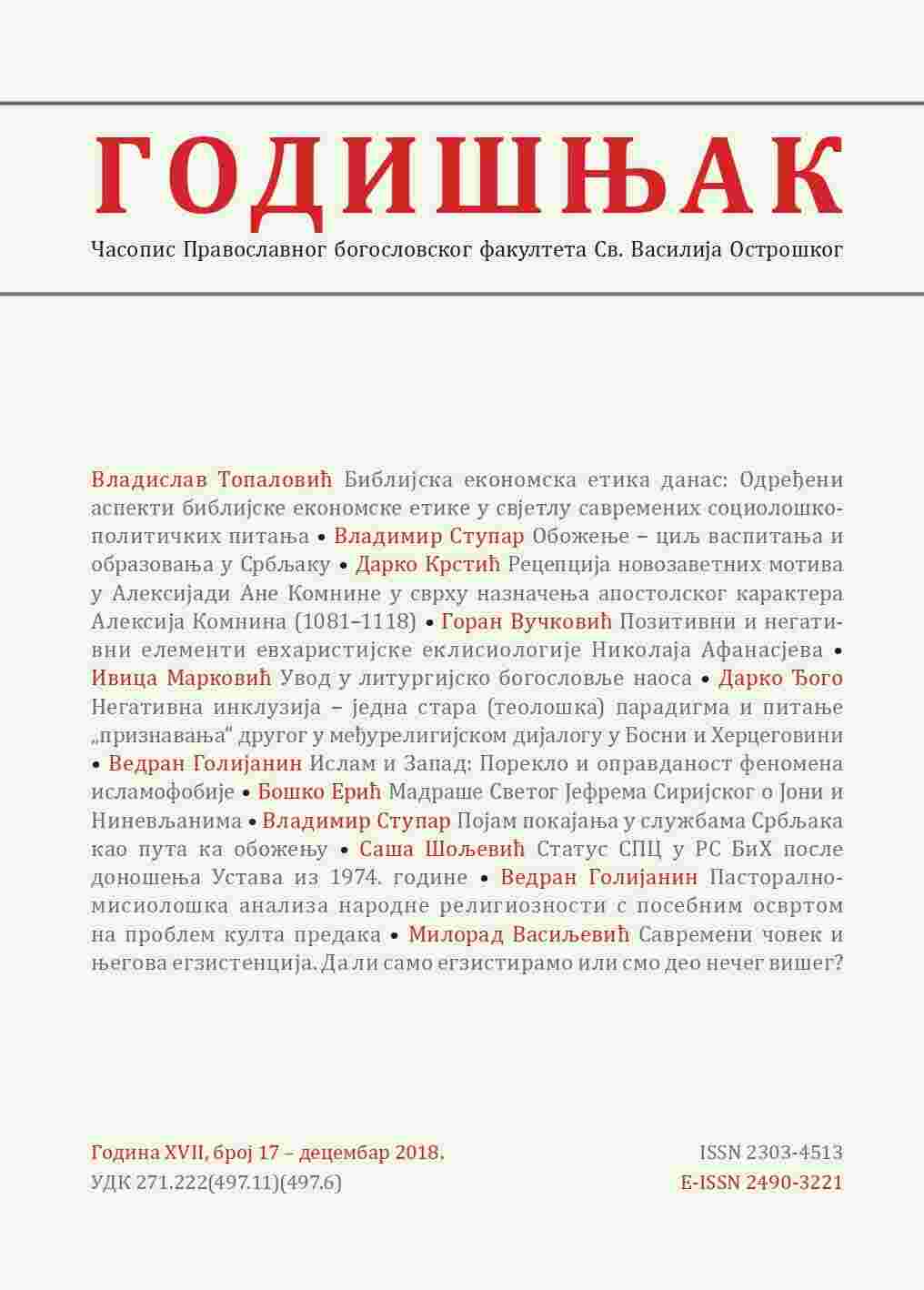Статус СПЦ у РС БиХ после доношења Устава из 1974. године
The Status of Serbian Orthodox Church in the Republic of Bosnia and Herzegovina after the Ratification of the Constitution in 1974
Author(s): Saša ŠoljevićSubject(s): History of Church(es), Constitutional Law, Human Rights and Humanitarian Law, Eastern Orthodoxy, Canon Law / Church Law
Published by: Православни богословски факултет „Свети Василије Острошки“
Keywords: Serbian Orthodox Church; the 1974 Constitution; the 1976 Law on legal position of religious communities; Republican commission for religious matters; religious freedom; secular religion; clericalism;
Summary/Abstract: The Constitution and the laws in Socialist Federal Republic of Yugoslavia implied that religion is strictly private matter, thus discriminating the believers. Although the Church and State were formally separated, and churches and religious communities were formally allowed to organize themselves autonomously, the State did not preserve its neutrality in religious matters but controlled and influenced the religious institutions. Social marginalization and governmental repressions were much more severe against Serbian Orthodox Church than against other religions. It was even clearer after the ratification of the Constitution in 1974 that introduced confederate elements. The enhancement of republican statehood in Bosnia and Herzegovina resulted in more severe repressions against Serbian Orthodox Church, which was obvious in many arrests of priests, prohibitions against collecting contributions for ecclesial matters, and further confiscation of church property. Bosnia and Herzegovina was the bastion of dogmatism and censorship almost until the breakup of Yugoslavia.
Journal: Годишњак
- Issue Year: 2018
- Issue No: 17
- Page Range: 126-140
- Page Count: 15
- Language: Serbian

